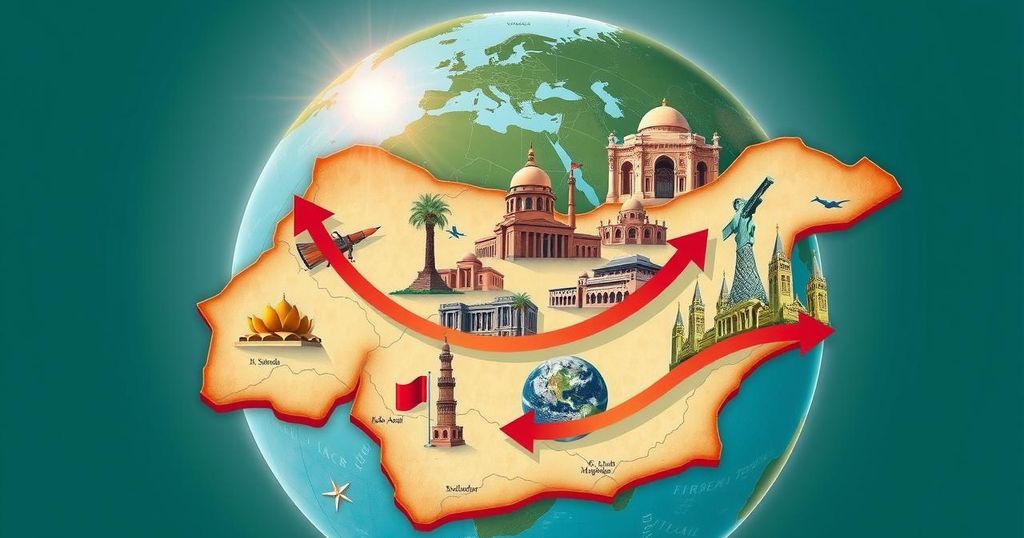UN Agencies Alarmed by Pakistan’s Deportation Plans for Afghan Refugees
UN agencies have voiced urgent concerns over Pakistan’s decision to deport thousands of Afghan refugees awaiting relocation, particularly with the approaching deadline for evictions from Islamabad and Rawalpindi by March 31. Approximately 20,000 Afghans were approved for U.S. resettlement but face increasing uncertainty amid a crackdown on undocumented foreigners. The UNHCR urges the implementation of humane relocation measures, particularly for those at risk of persecution in Afghanistan.
The United Nations refugee and migration agencies have raised alarms over Pakistan’s recent decision to forcibly deport thousands of Afghan refugees who are awaiting relocation to the United States and other countries. This announcement follows Prime Minister Shehbaz Sharif’s directive to evict undocumented Afghans from Islamabad and Rawalpindi by March 31, requiring urgent processing of their relocation cases by designated countries.
Approximately 20,000 Afghans had received approval for resettlement in the U.S. as part of a program designed for individuals at risk due to their affiliations with American entities. Many of these refugees fled to Pakistan after the Taliban’s return to power in Afghanistan in 2021, but their cases have remained stagnant, heightening their distress amid U.S. program pauses.
The UNHCR has reiterated its non-return advisory established in 2021, which urged suspension of forced deportations of Afghan nationals, regardless of their status. The joint statement from the UN agencies expressed particular concern for individuals at heightened risk upon return, including women, ethnic minorities, journalists, and human rights advocates, who all face severe threats in Afghanistan.
Since the beginning of this year, reports indicate a rise in apprehensions of Afghan nationals in Pakistan, exacerbated by increased scrutiny of undocumented foreigners. Approximately 800,000 Afghans have reportedly been either voluntarily returning or forcibly deported since 2021, amidst mounting criticisms from human rights organizations and the Taliban.
Currently, in addition to those awaiting relocation, around 1.45 million Afghans are registered as refugees in Pakistan, whose residency remains extended until June. The UN agencies have urged for relocation measures to be approached with a focus on human rights standards, particularly for Afghan residents recognized as legal individuals in Pakistan.
UNHCR’s representative in Pakistan emphasized the country’s long-standing tradition of hosting refugees, while the IOM committed to collaborating with the Pakistani government to establish a systematic approach for managing Afghan nationals. This cooperation aims to provide effective solutions and facilitate international protection for those in need.
The situation for Afghan refugees in Pakistan has become increasingly precarious since the Taliban’s resurgence in 2021, leading many to seek safety across the border. The UNHCR has been addressing the rights and safety of these individuals, especially those targeted for their roles in assisting the U.S. government and humanitarian efforts. Recent government actions in Pakistan, particularly nearing deadlines for relocation, have intensified concerns over the future of these refugees and the adequacy of their protections against forced repatriation.
The recent developments regarding the deportation of Afghan refugees from Pakistan are alarming, particularly in light of the risks these individuals face upon return. The involvement of the United Nations in advocating for their safety highlights the severity of the situation. Observers emphasize the need for Pakistan to honor its commitments to human rights and facilitate a compassionate approach to managing the Afghan refugee crisis.
Original Source: www.independent.co.uk








Post Comment